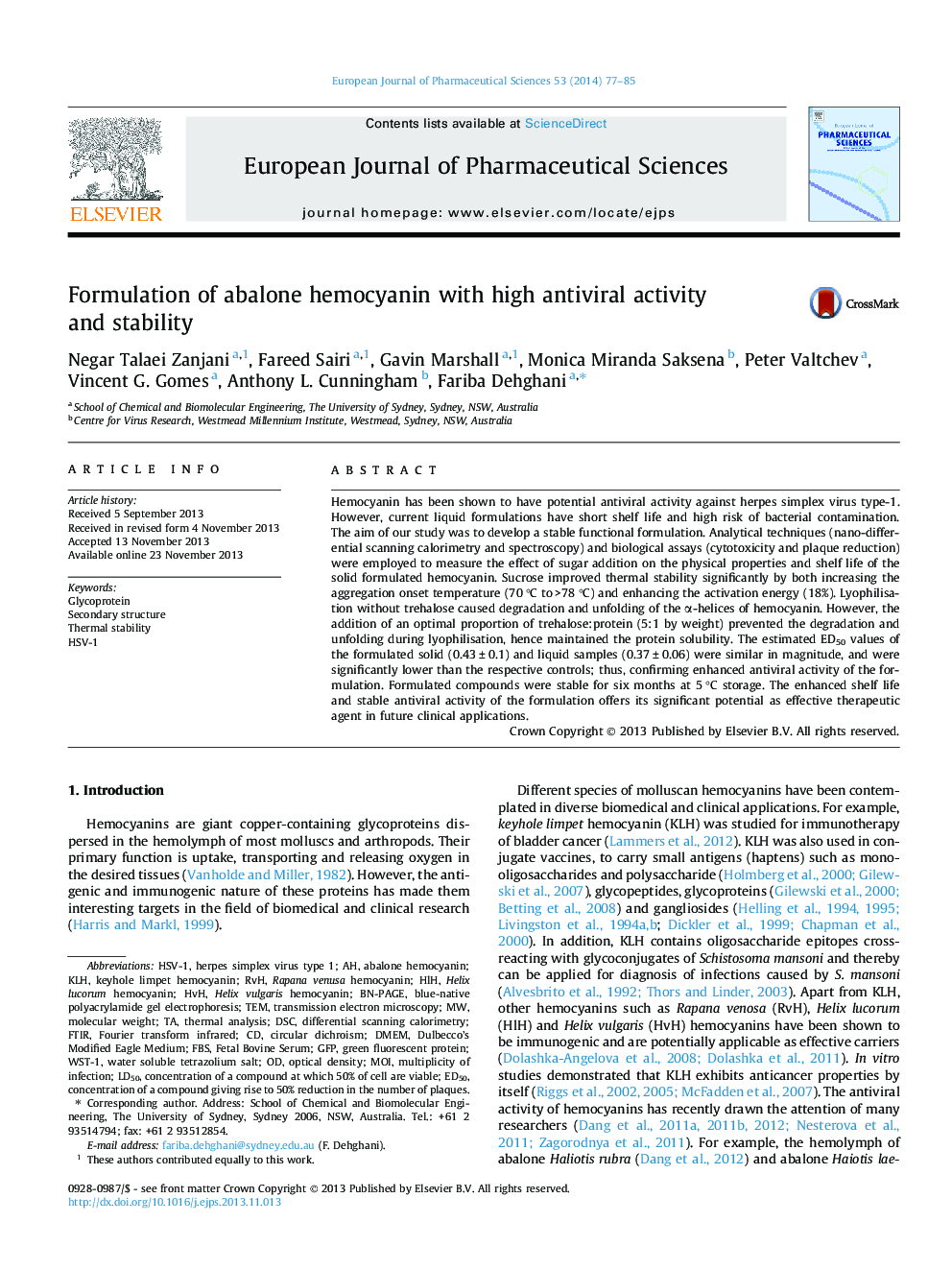| Article ID | Journal | Published Year | Pages | File Type |
|---|---|---|---|---|
| 2480586 | European Journal of Pharmaceutical Sciences | 2014 | 9 Pages |
Hemocyanin has been shown to have potential antiviral activity against herpes simplex virus type-1. However, current liquid formulations have short shelf life and high risk of bacterial contamination. The aim of our study was to develop a stable functional formulation. Analytical techniques (nano-differential scanning calorimetry and spectroscopy) and biological assays (cytotoxicity and plaque reduction) were employed to measure the effect of sugar addition on the physical properties and shelf life of the solid formulated hemocyanin. Sucrose improved thermal stability significantly by both increasing the aggregation onset temperature (70 °C to >78 °C) and enhancing the activation energy (18%). Lyophilisation without trehalose caused degradation and unfolding of the α-helices of hemocyanin. However, the addition of an optimal proportion of trehalose:protein (5:1 by weight) prevented the degradation and unfolding during lyophilisation, hence maintained the protein solubility. The estimated ED50 values of the formulated solid (0.43 ± 0.1) and liquid samples (0.37 ± 0.06) were similar in magnitude, and were significantly lower than the respective controls; thus, confirming enhanced antiviral activity of the formulation. Formulated compounds were stable for six months at 5 °C storage. The enhanced shelf life and stable antiviral activity of the formulation offers its significant potential as effective therapeutic agent in future clinical applications.
Graphical abstractFigure optionsDownload full-size imageDownload high-quality image (159 K)Download as PowerPoint slide
